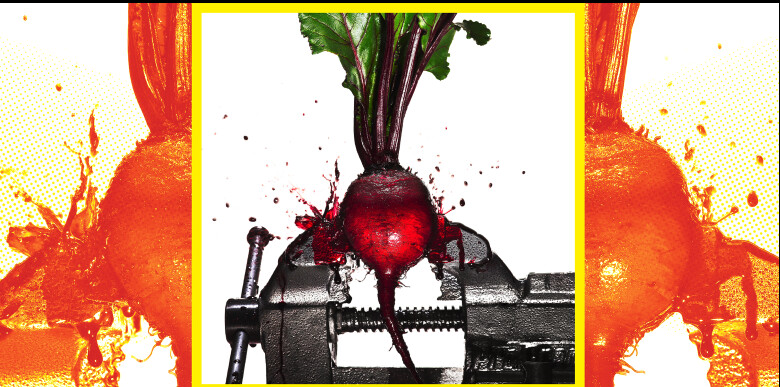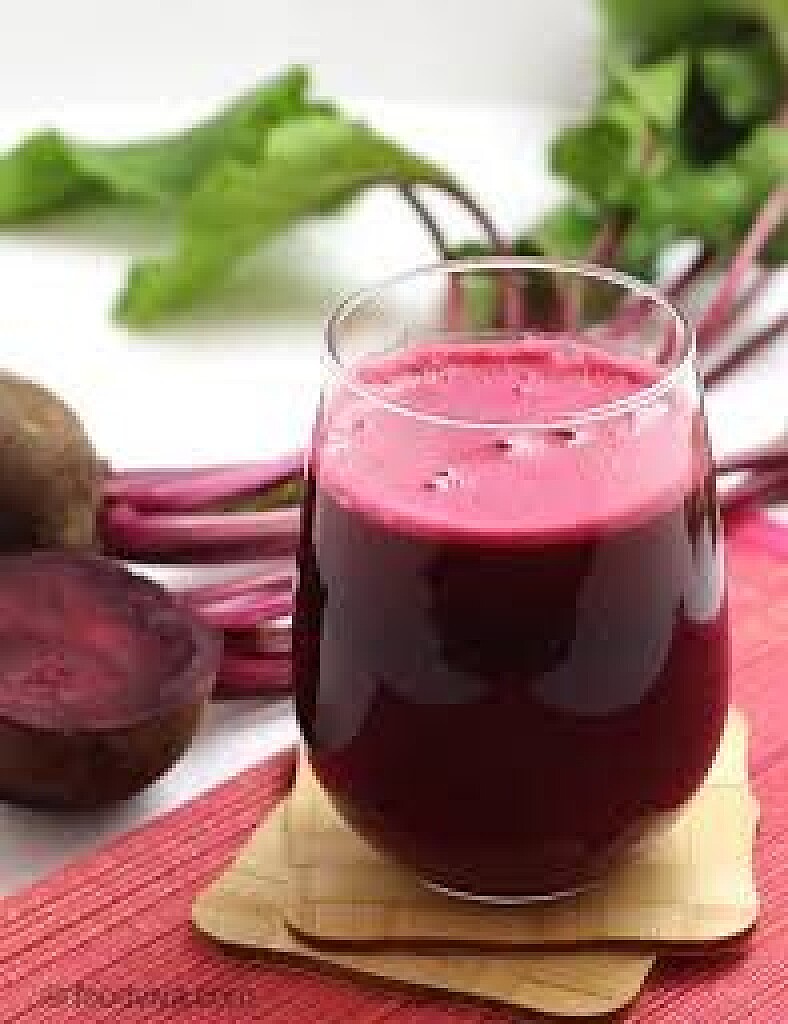Running News Daily
Running News Daily is edited by Bob Anderson. Send your news items to bob@mybestruns.com Advertising opportunities available. Train the Kenyan Way at KATA Kenya and Portugal owned and operated by Bob Anderson. Be sure to catch our movie A Long Run the movie KATA Running Camps and KATA Potato Farms - 31 now open in Kenya! https://kata.ke/
Index to Daily Posts · Sign Up For Updates · Run The World Feed
The Research on Beetroot Supplements and Exercise Is Kind of Awesome
But let's get to the root of the actual science.
SUPPLEMENT MAKERS ADVERTISE that their powdered beets support your heart and make workouts easier.

Beetroot powder is available as a standalone product, though it also pops up in a bunch of other supplements, such as pre-workout energy boosters and heart health chews, as an added ingredient.
Supplement companies claim beetroot powder boosts energy, increases athletic performance, and promotes heart health by improving blood pressure and circulation. Often, these companies will cite beets’ ability to boost nitric oxide, a molecule that helps blood vessels expand and contract.
Let's get to the root of those claims.
What Is Beetroot Powder?
IT'S BEETS, BUT in powder form.
And know that beets, as in the root vegetable, are good for you—no debate there. “Beetroot contains two types of bioactive constituents, betalains (which give the purple color) and nitrate (which also occurs in similar amounts in some other common vegetables, like celery and lettuce),” says Kirsten Brandt, Ph.D., senior lecturer at the Human Nutrition & Exercise Research Centre at the UK’s Newcastle University. Betalains have heart-protecting properties, and your body converts nitrate into nitric oxide to help regulate your circulatory system and reduce inflammation.
More good news: These compounds stay mostly intact when beets undergo processing into powder or even juice. Concentrations vary by beet variety and processing method, but research suggests both powders and juices can both hold onto in those beneficial compounds. (Fun fact: Often, beetroot powder is just freeze-dried beet juice).
What Is Beetroot Powder Good For?
IN SUPPLEMENT FORM, beets might:
Moderately Reduce Blood Pressure
A study review published in Frontiers in Nutrition showed that people who consumed beetroot juice daily for anywhere from three to 60 days reduced their systolic blood pressure by five more points than the control group. The reason: Nitric oxide helps blood vessels relax.
Make Hard Workouts Easier
A study review in the Journal of the International Society of Sports and Nutrition suggests that beetroot juice supplements might boost power and improve performance during high-intensity exercise. Again, nitric oxide comes into play by helping your muscles maintain phosphocreatine, a building block that otherwise depletes during a hard workout. Beets also improve the release and use of cellular calcium to help you contract muscles faster.
Improve Muscle Recovery
A study review published in Sports Health suggests that a few days of beetroot supplementation can speed recovery from post-workout muscle soreness. One theory is that nitric oxide reduces muscle inflammation and aids regeneration.
Assist Your Memory
In a recent study in the European Journal of Nutrition, people who consumed three grams of chewable beetroot powder tablets 90 minutes before taking memory tests scored 21 percent higher on a test of short-term memory than they did after taking a placebo. A beet-induced boost in nitric oxide might increase cerebral blood flow, temporarily boosting brain power, the researchers say.
So the benefits of beets are promising, but don’t get too excited yet: Beet supplement studies have small numbers of participants (just five to 80 in the studies cited above) and lack the rigor of drug trials, says Brandt. (A phase III drug trial would likely have 1,000+ participants.)
That means it’s hard to generalize the results and conclude whether the benefits shown in these supplement studies would apply to all or most of the population, including you.
And don’t count on beetroot supplements to save your heart in the long run. There’s no evidence that the acute benefits of beetroot powder, for your heart or elsewhere, add up over time.
Without high-quality long-term studies, any claims implying long-term benefits can’t be verified. And since the good-for-you compounds in beets can’t be patented, “there is little economic incentive for the industry to carry out large well-controlled trials,” says Brandt.
Should You Take Beetroot Supplements?
YOUR BEST BET is eating more beets in their whole vegetable form, says Brandt.
Whole beets contain beneficial fiber, which some supplements lack. Now if you hate the taste or can’t bear the chore of peeling beets, the powder can be an easy substitute–just make sure you consume other foods rich in fiber, like whole grains, says Brandt.
What Should You Look for in a Good Beetroot Supplement?
WHEN SHOPPING FOR beet powder, avoid capsules and opt for a loose powder or chewable option instead. The process of converting nitrate to nitric oxide begins in your mouth, thanks to an assist from bacteria on your tongue, says Brandt. Capsules bypass this process and land further down in your digestive tract. And skip antibacterial mouthwash before you take your beets—it can interfere with nitrate’s conversion to nitric oxide, she says.
Who Should Not Take Beetroot Supplements?
AVOID BEETROOT SUPPLEMENTS if you already have hypotension and don’t need your BP to go any lower. And steer clear of beetroot powder if you know you have a high risk of kidney stones, because beets contain a lot of stone-forming oxalate.
If you have high BP and already take medication for it, talk to your doctor before buying a beet supplement. If it works, your doctor might need to adjust your medication, says Brandt.
Login to leave a comment




